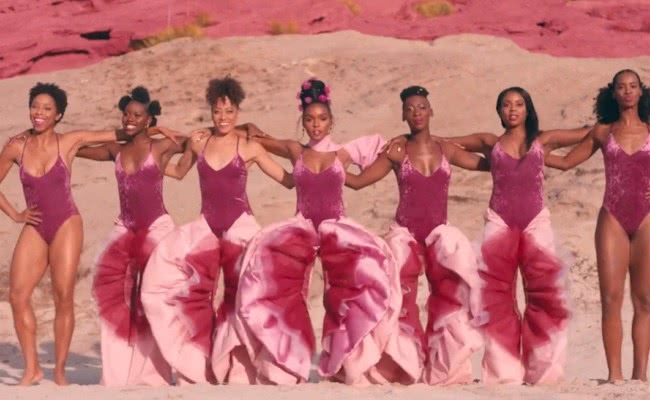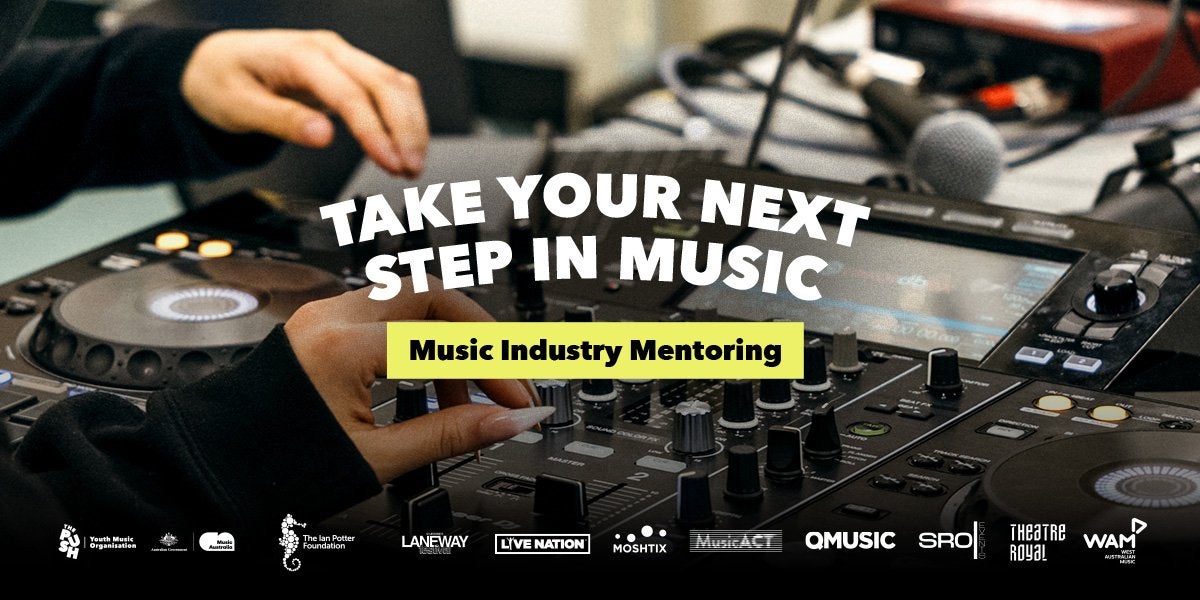Janelle Monáe: A voice that’s ready to be heard

For over a decade Janelle Monáe has been releasing music to critical acclaim and worldwide success, yet her third album has thrown her headfirst into the spotlight of mainstream music, media, and superstardom.
In 2007 after featuring on tracks by OutKast, Cee Lo Green and more, Janelle Monáe released her debut EP. The Critically acclaimed Metropolis: The Chase Suite was the beginning of an eight year journey into the life of Cindi Mayweather.
Across the EP and two further concept albums, the artist showed us the world of her alter ego – a dystopian future where she is an android on the run from her home city metropolis. In The Electric Lady, Mayweather returns to Metropolis to liberate its citizens from their oppressors.
Watch the video for Janelle Monae’s ‘Q.U.E.E.N.’ below:
These albums are a commentary on the society Mayweather is living in, however in many moments you can see beneath the guise of Cindi’s character and see how this music is also inspired by the society Monáe herself is in.
With the Metropolis series, Monáe received acclaim from all over the world and reached a new level of popularity, but was still slightly removed from the mainstream. However after starting her own label Wondaland and releasing a song as part of its first release Monáe appeared to slow down in 2016.
However, slowing down is something that doesn’t come easy to Janelle Monáe. Throughout the next two years she shifted her focus to being an activist as part of the Black Lives Matter movement, as well as with the Women’s March. The artist is incredibly passionate and focussed on her support for any and all of the marginalised and oppressed
Cut to the beginning of this year, Monáe has featured in two of 2016/17’s award seasons biggest films (Hidden Figures, Moonlight), and continued to support the growing Wondaland empire she had built. She made a fearless statement at the Grammy’s referencing the #MeToo movement: “We come in peace, but we mean business.” The artist is also gearing up to release two new singles and announce an album and companion “emotion picture”.
As she launched the album, a cover story with Rolling Stone acted as the artist’s official coming out. Opening up to the magazine, Monáe confirmed her queer identity as a pansexual women. Describing her identity she told the publication: “I consider myself to be a free-ass motherfucker.” A brave and inspiring statement from someone who has spent most of their career in character.
“I knew I needed to make this album, and I put it off and put it off because the subject is Janelle Monáe.”
Dirty Computer and the real Janelle Monáe
Released a week ago, Dirty Computer is Monáe at her bravest and finest, showing her authentic self. From the first song and video released – the seductively funky Make Me Feel, it was clear that Monáe was changing things up. Gone were the uniform-like suits, and her classic hairstyle. No longer was she singing as a character, this was Janelle Monáe showing the world she was ready to share her story.
The artist told The New York Times that she felt the public doesn’t really “know Janelle Monáe, and I felt like I didn’t really have to be her because they were fine with Cindi.” She also said she had been working on the themes of this album for at least a decade. “I knew I needed to make this album, and I put it off and put it off because the subject is Janelle Monáe.”

Accompanying the album, an emotion picture was released following Monáe and two partners as they try to free themselves from the society they live in which is forcibly against homosexuality and freedom of expression.
The album is an homage to women, the spectrum of sexual identities, and America. Separated loosely into three parts – reckoning, celebration and reclamation, the record is filled with parts of a sermon by Dr. Sean McMillan about race, America, and gender pulling the album together.
Stream Dirty Computer below:
Reckoning
The first part of the album follows the singer as she recognises how she is viewed by society. The artist sings and raps about how she has been treated in this world, as well as how she wants to be viewed by everyone. “Remember when they told you I was too black for ya? And now my black poppin’ like a bra-strap on ya” – part of the outro of ‘Crazy Classic Life’ – shows Monáe acknowledging the views and opinions of society about her, but also fighting them head on.
Celebration
The middle section of the album sees Monáe accepting herself as she is, and celebrating her identity as a pansexual women of colour in America. In the chorus of ‘I Like That’, she sings “I don’t really give a fuck if I was just the only one who likes that. I never like to follow,” The statement is a proclamation of independence and pride from the real Janelle Monáe.
Reclamation
The final songs of the album are the most personal and intimate moments on the record, exploring what the American identity has become and what Monáe wants it to be. The most powerful moment comes in closing track ‘American’. Monáe proclaims “Seventy-nine cent to your dollar. All that bullshit from white-collars. You see my colour before my vision.” Calling out the inequality of races in America, and how it has held her and her peers back.
McMillan’s sermon is heard in the bridge, “Until women can get equal pay for equal work, this is not my America. Until same gender loving people can be who they are, this is not my America. Until black people can come home from a police stop without being shot in the head, this is not my America. Until poor whites can get a shot at being successful, this is not my America.”
It’s an ode to what America could and can be. Monáe has a vision like many others, and is not willing to give up on it.
The entire album is a celebration of anyone who doesn’t feel normal, or has been told they don’t belong. Monáe has opened herself up and shared her story so that others can hear her message all over the world. She aims to inspire, and educate the masses through her music and with this breakthrough album she has.
In a time where the world is filled with a growing hate, the hope and pride Monáe displays is a breath of fresh air.
Watch the video for Janelle Monae’s ‘I Like That’ below:
The article was originally published on The Industry Observer




.jpg)